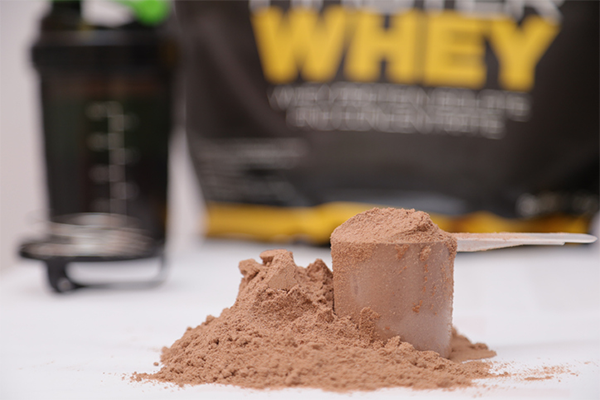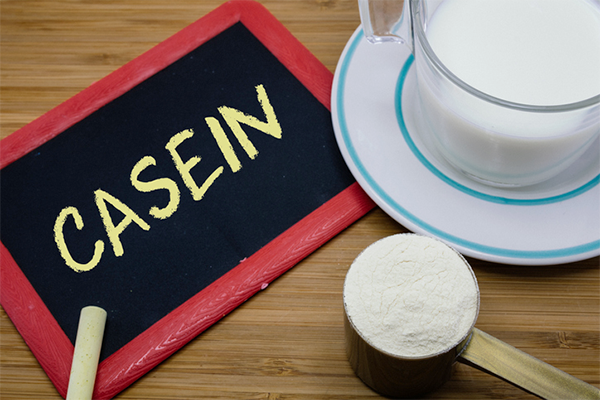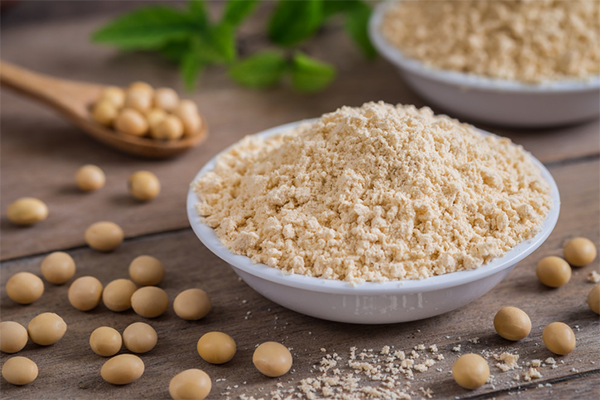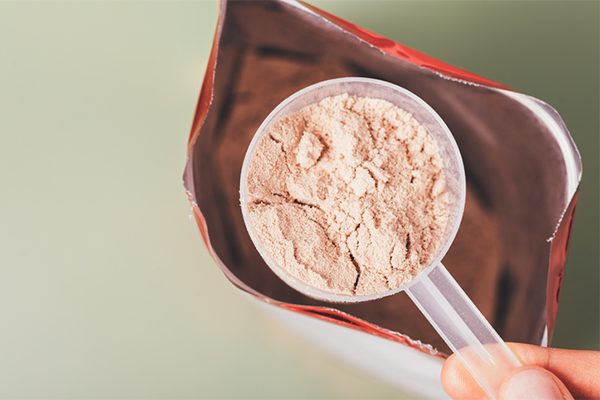Protein powder is made to be a convenient, tasty way to get protein you need on the go — simply mix the powder with water, milk, or in a smoothie, and drink. But is protein powder good for you?
And is it just as good — or better — than protein that comes from food?
Here are some things to consider before you invest in a protein powder supplement.
What Is Protein Powder?
Protein powder is a concentrated form of protein that results from processing milk or certain plant foods.
If you’re looking to build muscle or lose weight, protein powders can make it easier to hit your daily protein intake goals (more on the importance of this later).
While there are many different types of protein powder, the majority of protein you’ll find lining the shelves at the supplement store fall into three categories:
1. Whey protein powder
Whey protein is a fast-digesting protein made from milk — more specifically, the liquid that’s left over when solids are removed, which is then processed into powder.
There are three varieties of whey protein powder:
- Whey protein concentrate contains anywhere from 25 to 89 percent protein.
- Whey protein isolate contains at least 90 percent protein.
- Whey protein hydrolysate contains at least 90% protein but is also broken down via hydrolysis to promote absorption.
“One benefit of whey protein is that it is a good source of branched-chained amino acids (BCAAs), which may play a role in aiding in muscle growth and recovery,” says Bansari Acharya, R.D.N., registered dietitian nutritionist and contributor at FoodLove.
2. Casein protein powder
Casein protein is also found in milk, but unlike whey, it doesn’t dissolve as quickly in your stomach acid, so it’s “digested and absorbed at a slower rate,” says Acharya. “The result is a more gradual entry to your muscles, which may lead to muscle mass growth.”
Because it’s a slow-digesting protein, casein is especially useful when consumed before bed.
3. Plant-based protein powder
Plant-based protein powders are made from plant sources like beans, legumes, seeds, and/or grains.
Pea protein, from the yellow split-pea, is one of the most common plant-based powders. “It contains all amino acids, which includes BCAAs,” says Acharya.
If you don’t like the taste of pea protein, your next best bet is soy protein powder.
Soy protein powder is also plant-based, but like whey and casein, it contains enough of all the essential amino acids our bodies need to be considered “complete.”
While soy is naturally rich in health-promoting nutrients like isoflavones, research shows these benefits are more likely from whole food sources that are minimally processed. This leaves the jury still out if those same benefits can be seen from soy protein powder.
Hemp and rice protein powder are also fairly common but might not be quite as effective as pea or soy. Hemp protein contains omega-3 fatty acids, but it’s low in leucine (the amino primarily responsible for muscle growth), and rice protein lacks a complete amino acid profile.
Protein powders may also be fortified with fiber, antioxidants, and vitamins and minerals, but these additional benefits vary between manufacturers, brands, and their specific formulations. That’s why you should always check the labels on any supplement you purchase.
Is Protein Powder Good for You?
Protein powder is a solid option if you want to up the amount of protein you’re getting each day to help you meet health goals, like building more muscle or dropping a few pounds.
While downing a protein shake before or after a workout won’t automatically equal a lower number on the scale, it adds to the amount of protein in your diet.
We need to consume, at a minimum, 0.8 grams of protein per kilogram of body weight a day — that’s 54 grams for a person weighing 150 pounds. For those looking to build muscle or lose weight, that number jumps up to around 2.2 grams per kilogram of body weight.
Increasing that amount can help your body burn more calories a day, which can lead to weight loss.
Additionally, protein powder “may decrease your appetite and help you feel fuller for longer, which can aid in weight loss,” she adds.
Protein is shown to promote satiety so you feel fuller for longer and decrease ghrelin, the hunger hormone.
That said, getting in your protein via a powder might not be a good choice if you’re sensitive or allergic to dairy or soy, or have certain medical conditions that affect your body’s ability to digest extra protein.
And because protein powder doesn’t always taste good on its own, many companies add artificial sweeteners to make it taste better, so always check the ingredient labels.
How to Incorporate Protein Powder Into Your Diet
Protein powder supplements should be just that — a supplement to a healthy diet, not a replacement for nutrient-rich whole foods.
Getting protein from whole food sources is important to get all the nutrients the body needs, such as vitamins, minerals, healthy fats, and fiber, says Kimszal. “Relying solely on protein powder may limit the number of fresh vegetables in the diet leading to lower consumption of fiber,”
So when should you use protein powder? When you need a convenient way to make a dent in your recommended daily protein intake.
“Protein powder can come in handy if you’re trying to build muscle” or regularly do high-intensity or endurance-based workouts, says Acharya.
While any source of protein can help with post-workout muscle repair and recovery, it’s not always easy to sit down to a full meal.
But mixing a scoop of protein with water — or indulging in a smoothie — after you towel off can easily kickstart the process while you get on with your day.






